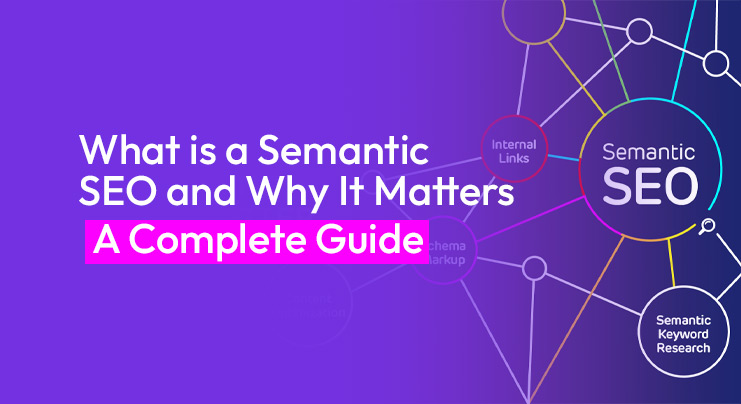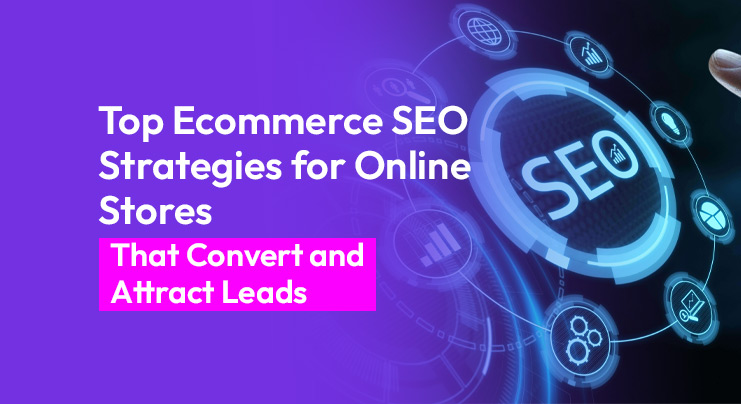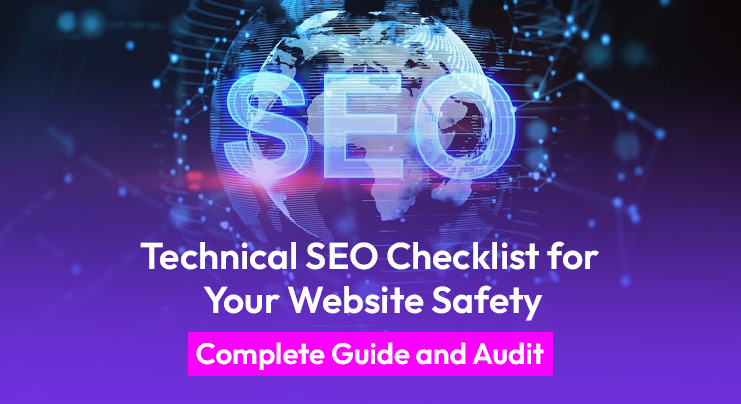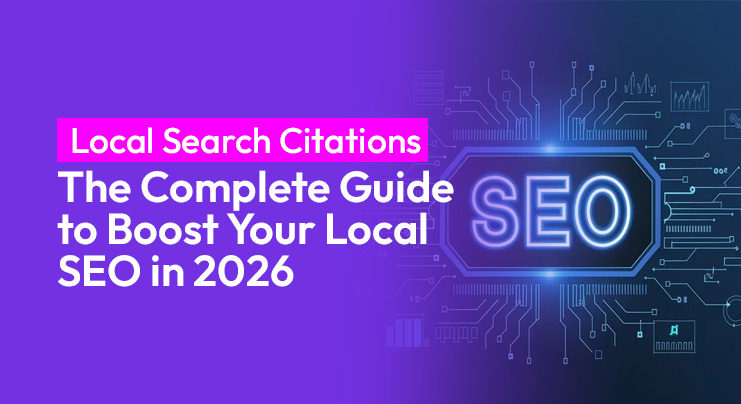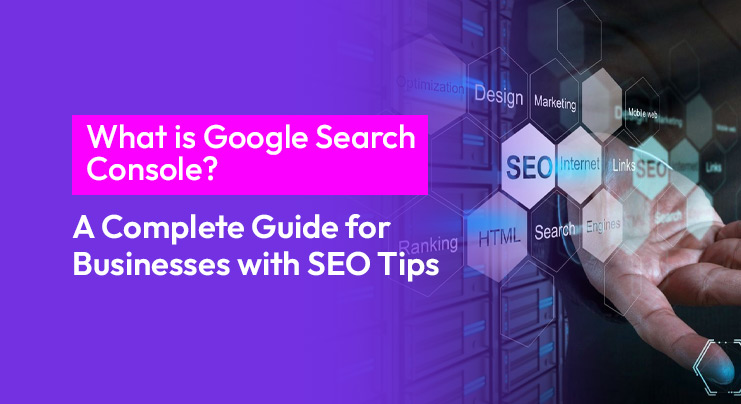The digital landscape is evolving faster than ever. Traditional SEO tactics that once dominated Google’s front page are now being replaced by a new force Generative Engine Optimization (GEO).
But what exactly is Generative Engine Optimization, and how can you use it to future-proof your brand visibility in the age of AI-powered search?
In this guide, we will break down everything from what is GEO and how it works, to how generative engine optimization future of digital marketing, best practices, and how small businesses can leverage it to stay visible in Search Generative Experiences (SGE) like Google’s AI overview or Bing Copilot.
What Is Generative Engine Optimization (GEO)?
Generative Engine Optimization (GEO) is the process of optimizing your website content to appear in AI-generated answers produced by Generative Search Engines — like Google SGE, ChatGPT, Bing Copilot, and Perplexity AI. While traditional SEO focuses on ranking high on SERPs (Search Engine Result Pages), GEO focuses on being chosen by AI systems as a reliable source for their generated summaries or answers.
In short: SEO gets you ranked — GEO gets you referenced.
When you type or speak a question into an AI-powered search, the AI doesn’t just list websites, it generates a complete answer. Generative Engine Optimization ensures your brand is part of that answer.
GEO vs SEO: Understanding the Difference
Let’s clear the confusion between GEO vs traditional SEO. Both aim for visibility, but their mechanisms differ drastically:

Traditional SEO helps you rank. Generative SEO helps you be recognized by AI systems as an expert.
That’s why many businesses are now partnering with Generative Engine Optimization agencies and GEO consultants to adapt their digital presence for the new AI search ecosystem.
How Generative Engine Optimization Is the Future of SEO
- AI Search Is Changing Everything
With the rollout of Google’s Search Generative Experience (SGE), users no longer browse ten blue links, they get instant, conversational answers. Brands that optimize for GEO will appear inside those AI-generated summaries. - Authority and Accuracy Matter More Than Ever
SEO services and Generative Engine Optimization best practices, brands can build trust and be quoted by AI engin - Small Businesses Can Compete with Giants
GEO levels the playing field. A small business with expert, well-structured content can get cited by AI models as easily as a large corporation, if it follows generative engine optimization strategies correctly. - Future-Proofing Against Algorithm Changes
While Google’s SEO algorithms change constantly, GEO focuses on human-first, structured, factual content, which AI always prefers. - Integration with Voice and Conversational AI
From Alexa to ChatGPT, voice search uses Generative AI SEO logic. That means prompt engineering for SEO and structured data for AI search will become essential for digital marketers.
Curious how GEO actually works for small businesses? Learn actionable insights with our in-depth guide on Silo SEO for AI content optimization, and structured data strategies.
How to Optimize for AI Search SGE & GEO Best Practices
If you want to appear in AI-generated answers, follow these generative engine optimization best practices used by top GEO agencies:
1. Structure Your Content for AI Understanding
AI doesn’t “read” like humans. It relies on clear structure, logical flow, and data patterns.
To optimize your content for Search Generative Experience (SGE):
- Use H2–H3 subheadings with descriptive keywords.
- Add short Q&A sections (like micro-FAQs).
- Integrate structured data markup (schema).
- Include summaries or key takeaways at the end of each section.
Pro tip: Add “What is…” or “How does…” questions within your articles, AI often scans for these to generate direct answers.
2. Strengthen Your E-E-A-T (Experience, Expertise, Authoritativeness, Trustworthiness)
AI systems use E-E-A-T signals to determine which sources to trust. To enhance your authority:
- Write under expert author profiles (with LinkedIn or website bios).
- Include real statistics, references, or client case studies.
- Avoid fluff and ensure factual precision — AI penalizes vague claims.
- Build backlinks from trusted domains and industry-relevant sites.
When AI cites your page, it’s essentially giving you a “digital recommendation.” Strong E-E-A-T makes that recommendation more likely.
3. Implement Structured Data for AI Search
Structured data (schema markup) helps AI “understand” your site content better.
For GEO optimization, add schema like:
- FAQ Schema: Perfect for AI-generated answer snippets.
- How to Schema: Ideal for step-by-step guides.
- Organization & Author Schema: Builds credibility.
- Product & Review Schema: Great for ecommerce GEO optimization.
Structured data not only improves Google SGE visibility, but also increases chances of being cited in AI summaries.
4. Use Prompt Engineering for Better SEO and GEO Results
“Prompt engineering” isn’t just for developers anymore — it’s becoming a marketing necessity.
By understanding how AI interprets questions, marketers can design content that directly matches AI search patterns.
For example:
Instead of writing “Best SEO practices,” try writing:
“What are the best practices for Generative Engine Optimization (GEO) in 2025?”
This mirrors how users naturally ask AI queries, making your content more likely to appear in SGE or ChatGPT answers.
5. Focus on GEO-Friendly Content Depth and Semantics

AI values context over keyword density. So, instead of repeating “Generative Engine Optimization services” 20 times, use semantic variations like:
- Generative SEO LLMs
- Generative engine optimization for small business
- Generative search optimization
- GEO strategies for digital marketing
- GEO local SEO
This not only boosts visibility but also ensures your content feels natural and human.
Generative Engine Optimization Strategies to Implement for Small Businesses
Many small businesses assume GEO is only for tech giants but a practical solution. Here’s how small businesses can leverage Generative Engine Optimization effectively:
- Create Local Authority Pages
For example, a Dubai-based agency could write: “Generative Engine Optimization services in Dubai — How local brands can rank in AI search.” This helps in GEO local SEO visibility. - Focus on Niche Expertise
A small medical clinic or real estate firm can publish expert-led content that AI engines prefer over generic articles. - Perform a GEO Audit for Websites
Tools and GEO agencies can evaluate how “AI-readable” your content is. They’ll check for structure, schema, and factual signals. - Use AI Citation Signals for Websites
Build credibility by earning citations from AI engines through consistent, accurate publishing.
(Tip: When ChatGPT or Perplexity quotes your site — note it as an AI citation.) - Collaborate with a Generative Engine Optimization Agency
Professional GEO companies and consultants can help fine-tune your strategy for AI-powered search visibility.
Real-World Example: GEO in Action
Let’s say someone asks: “What’s the best digital marketing strategy for small businesses in 2025?”
If your agency has a blog titled “Generative Engine Optimization for Small Businesses — The 2025 Playbook” with structured FAQs, clear stats, and schema markup, Google’s SGE or Bing Copilot might feature your article snippet directly in its AI-generated summary.
This visibility translates into higher traffic, authority, and lead generation — without competing for traditional SERP rankings.
Benefits of Generative Engine Optimization
Increased AI Visibility
Your website appears in AI-generated responses on Google SGE, Bing Copilot, and ChatGPT.
Higher Authority and Trust
Generative engines prefer sources with proven expertise and structured information.
Sustainable Organic Growth
GEO strategies are future-proof, ensuring you stay visible even as algorithms change.
Competitive Advantage
Early adopters of Generative AI SEO dominate in emerging AI search ecosystems.
Optimized for Human + Machine Understanding
GEO content satisfies both human readers and AI crawlers — a double win.
Common GEO Mistakes to Avoid
- Focusing on keywords, not context.
→ Use semantic clusters and conversational intent. - Ignoring structured data.
→ Schema markup is essential for AI comprehension. - Skipping factual credibility.
→ AI penalizes vague or unsupported claims. - No testing on AI search tools.
→ Regularly test your brand on Google SGE, Bing Copilot, and ChatGPT. - Treating GEO as a one-time effort.
→ Continuous updates are crucial as AI models evolve.
Practical Tip: GEO and SEO Works Well Together
GEO isn’t replacing SEO — it’s enhancing it. It works hand-in-hand with Local SEO to strengthen visibility in both AI search and traditional map-based results
Combine traditional SEO foundations (site speed, backlinks, keyword strategy) with Generative Engine Optimization techniques (contextual relevance, AI citations, structured data). This hybrid model ensures your content performs across both search engines and AI-driven platforms.
Conclusion: The Future of Digital Marketing Is GEO
The world of SEO is transforming into an AI-first search era and Generative Engine Optimization (GEO) is leading that revolution. Whether you are a startup, small business, or established brand, the key to future visibility lies in optimizing your content for AI-generated experiences. By embracing GEO today, you are not just ranking but ensuring your business belongs in the conversation every time AI answers a question.
Start Your GEO Journey Today!
Ready to future-proof your online visibility? Get a free Generative Engine Optimization Audit from Fulfillit our experts have complete GEO strategy, consulting audits, and AI-powered search optimization services.
Let’s help your business win the AI search game — before your competitors even realize it’s begun.
FAQs
How does GEO differ from traditional SEO?
Traditional SEO optimizes for ranking; GEO optimizes for recognition within AI-generated answers. While SEO targets Google SERPs, GEO targets AI-powered responses from ChatGPT, SGE, and Bing Copilot.
Will AI search reduce website traffic?
Not necessarily if you optimize content for search generative experience (SGE) While clicks may reduce, visibility and brand trust will increase when your business is cited within AI answers creating higher conversion-quality traffic.
How to structure content for AI-generated answers?
Use clear headings, short paragraphs, Q&A blocks, and structured data for AI search. Include direct answers to common user queries and optimize readability for both humans and machines.
What is Search Generative Experience (SGE)?
SGE is Google’s AI-powered feature that generates complete summaries instead of showing just website lists. GEO helps your content become part of these AI-generated overviews.
What’s the best software for Generative Engine Optimization GEO 2025?
While tools like SurferSEO, MarketMuse, and Clearscope are adapting, upcoming GEO audit tools and AI content analyzers like Perplexity Rank and ChatGPT Pro Plugins are expected to lead in 2025.





